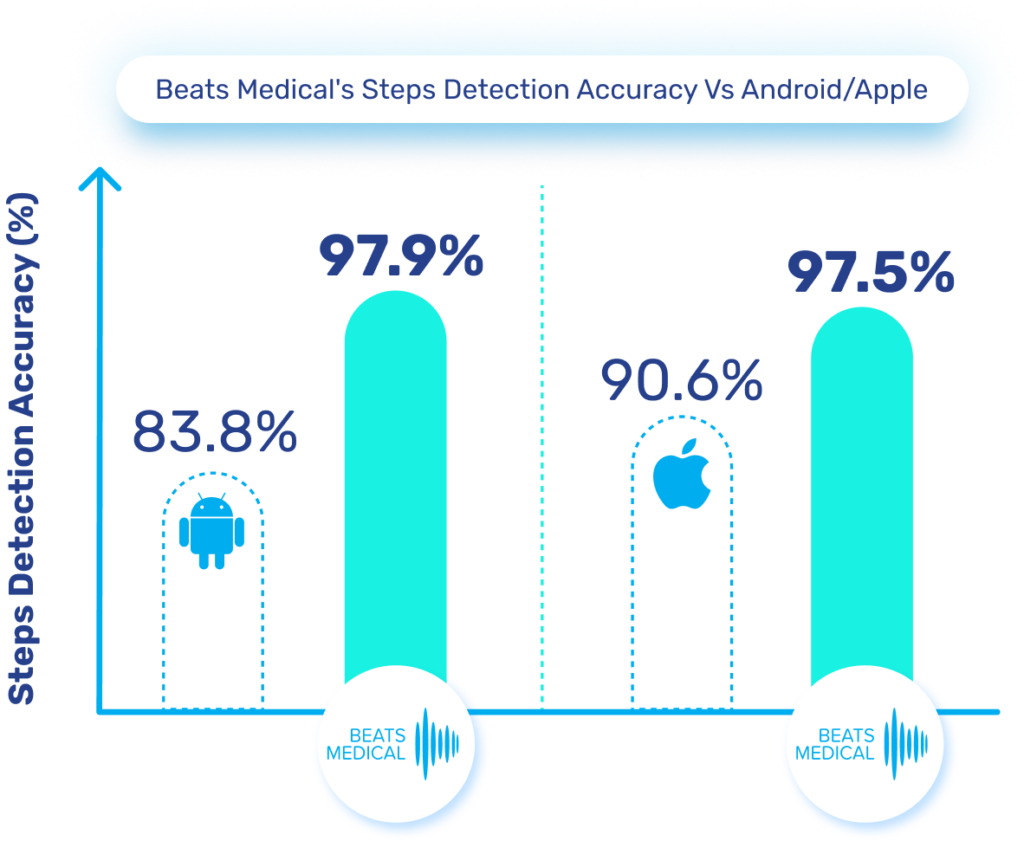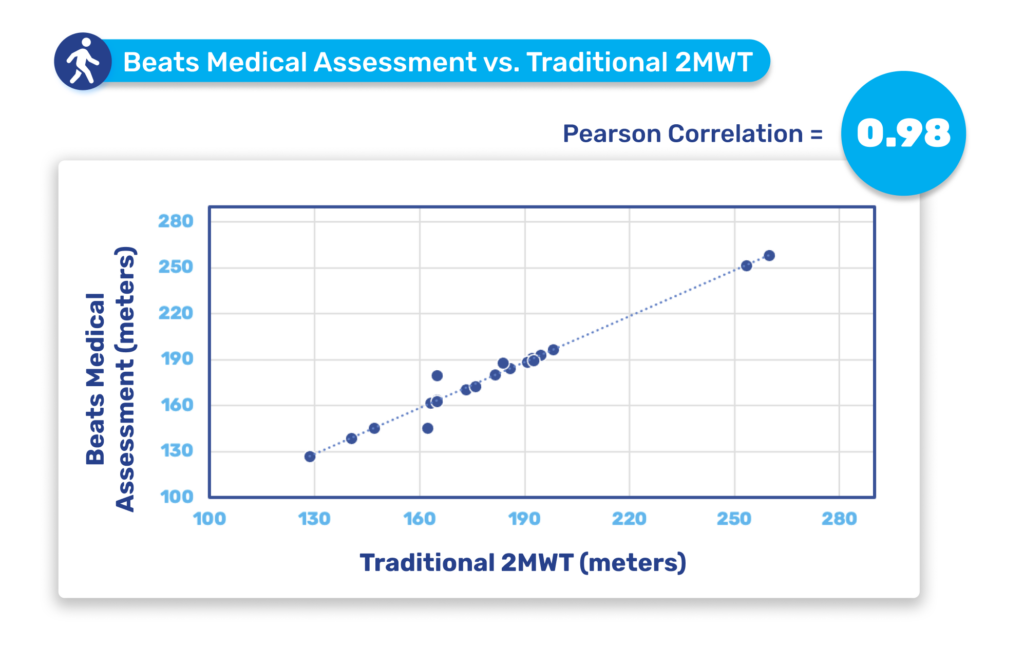Precision Measurement: Enhanced Sensitivity
Within the sphere of cutting-edge technology, leaders like Android and Apple are recognised for their advancements in biometric sensors for the general populace. However, a noticeable gap emerges when it comes to biometrics within clinical contexts.
Thorough internal testing by Beats Medical, in collaboration with users of our Parkinson’s application has demonstrated that, in comparison to the current state-of-the-art technology, our proprietary algorithms exhibit substantially higher levels of accuracy in tracking step counts for individuals living with CNS conditions.
Through our patented sensor adaptations and algorithms, Beats Medical outperform state-of-the-art technology in the measurement of altered movement and speech patterns seen in CNS Conditions and Rare Disease.

In direct contrast to the 83.8% and 90.6% accuracy rates achieved by industry giants Android and Apple when capturing steps taken by CNS patients (compared to clinician-monitored counts), our algorithmic technology achieved remarkable accuracy rates of 97.9% and 97.5% on Android and Apple devices, respectively.
This marginal error ensures that our users’ step counts align closely with the gold-standard of measurement, allowing us to attain exceptionally precise data and next-level insights.
Similarly, research conducted by Trinity College Dublin, a renowned national university, on our digitized 2-Minute Walk Test (2MWT) compared to the gold-standard clinician-administered assessment showcases a very strong positive correlation.

One of the most widely used statistical ways to show similarities between two data sets is through Pearson correlations. Pearson correlations range from -1 (indicating completely opposite datasets) to +1 (indicating identical datasets). The data comparing our digitised 2MWT to the traditional clinician-administered assessment has yielded a Pearson correlation of 0.98.
This speaks volumes about the remarkable proximity that our patented technology reaches in comparison to gold-standard practice measures.
The significance of more precise data cannot be overstated. It serves as the cornerstone for informed decision-making, thereby culminating in sharper insights and better patient outcomes. Specifically, the improved accuracy of biometric data improves our awareness of disease progression while fostering a deeper understanding of treatment efficacy— which in turn can help to shape more personalised treatment.
In clinical trials, the benefits are many, ranging from enhancing the recruitment and patient identification process to generating better quality data for analysis. Moreover, with accurate data being generated through a smartphone with no additional hardware or sensors required, the potential for generating real-world evidence is elevated to new heights.
For more information about how we can support your clinical trial pipeline, reach out to andrew@beatsmedical.com.


